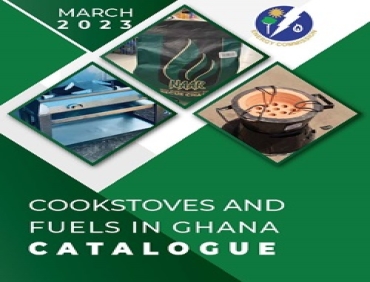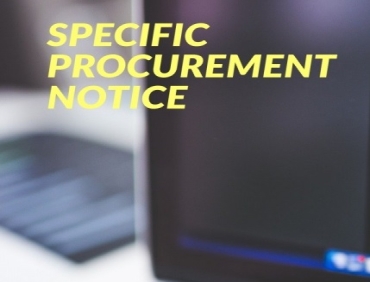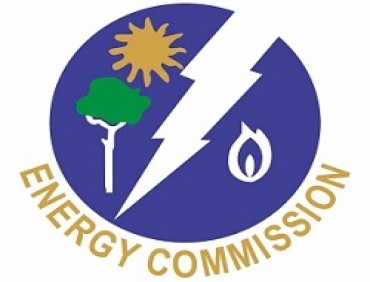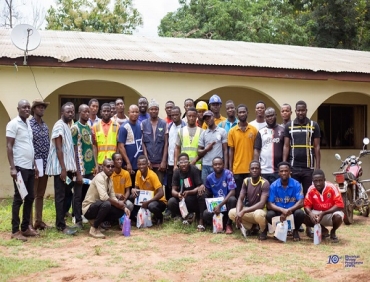
Energy Efficiency Guideline Questions
General
-
1. When did you establish Ghana’s Standards and Labeling (S&L) Programme and started implementing compliance?
Ans: Ghana’s Standards and Labeling programme started in 2005 with a regulation on non-ducted air conditioners and self-ballasted fluorescent lamps (L.I 1815). This was soon followed in 2009 on regulations for household refrigerators.
-
2. What agency(-ies) is responsible for ensuring energy efficiency policy enforcement? How
-
3. Why did you focus on compliance and have put effort in building robust compliance programme? What were key aspects that were important in building your programme? What were the lessons learned?
-
4. Have you seen change in industry compliance at the beginning of the programme and now? If yes, what were key aspects that helped to shift compliance levels?
-
5. What are main challenges that you face today in implementing compliance with energy efficiency policies?
Conformity Assessment
-
6. Can you walk us through the process of what the importer has to do/what steps to take in order to sell regulated products (e.g. refrigerators, ACs) in Ghana?
Ans:
- Identify the brand(s) and model(s) of refrigerating appliances you intend to import into the country
- Identify the factory you intend to purchase or source your refrigerating appliances from
- Request for THIRD PARTY Energy Efficiency Test Report IEC 62552:2007/2015 from the factory covering the brand(s) and model(s) you intend to import
- Submit the third party energy efficiency test report(s) to the Energy Commission in both hardcopy addressed to the Executive Secretary, Energy Commission, PMB Ministries, Accra and in softcopy to the email address eereport@energycom.gov.gh
- Pick up an official letter from the Commission indicating the “Star Rating” of the appliances
- A soft version of the approved label with a QR embedded, will be emailed to you to print out Energy Efficiency Labels for your appliances
- Liaise with the factory you are sourcing from to stick the energy efficiency labels on both the appliance and the carton before shipment
- At the point of entry (Tema & Takoradi Port), alert the Energy Commission Officials on duty of the arrival of the goods/consignment
- Cooperate with the Energy Commission Officials as they crosscheck the details of your appliance with the documentation you submitted
-
7. From the regulator perspective, what are the processes to ensure that non-compliant products do not get into Ghana?
-
8. How do you use the product database for conformity assessment at the border? What value it provides?
-
9. What steps you take if the product being imported do not meet regulatory requirements or suspected to be non-compliant?
Market Surveillance
-
10. Can you walk us through your approach to market surveillance and what activities you undertake? What is the strategy? How many How frequently?
Ans: The Energy Commission undertakes periodic market surveillance to inspect appliances sold in the market. We have developed a check list to determine the compliance level of all retail shops we visit. The GPS location of the retail shops as well as the compliance score is updated in the mobile App for customers to make an informed decision.
-
11. Do the inspectors have authority to enter the premises (e.g. retail stores, warehouses) to conduct product inspections?
-
12. Do you use any tools such as check lists, apps to track market inspection results?
-
14. What are the most frequent cases of non-compliance?
-
15. What is your approach to enforcement? What steps do you take to rectify non-compliance? E.g. missing label, product is not registered.
Testing
-
16. Do you test products to verify their performance? If you do, what is the process? How do you select the products for testing?
Ans: Yes, we do verification testing. This is done by random sampling of suspected non-compliant products or complaints from consumers on particular models or brands.
-
17. Do you have cases when the importer does not agree with the verification test results? How you address such issue?
Communications
-
18. Do you publically share information on non-compliant entities and products? How frequently? Are you aware, if consumers find it valuable?
Ans: Consumers find it valuable to share information of non-compliance because it helps them make an informed decision. “Naming and shaming” is an approached adopted by the Energy Commission for such non-compliant brand or models.
-
19. Do you conduct communication campaigns for the consumers to promote energy efficient products? What approaches/mediums (TV show, social media, ads, etc.) work best in Ghana?
-
20. Have you seen impact of communication campaigns and outreach to consumers on the sales of energy efficient products?
-
21. Have you done any trainings and outreach to importers, manufacturers, retailers to inform them about the S&L programme requirements? Have such outreach increased the compliance?
Impacts
-
22. Have you assessed compliance programme impacts/benefits (e.g. reduced non-compliance, consumer behavior change, others)? If, yes, what are the impacts/benefits? Who are the main beneficiaries (country, consumers, industry, etc.)?
Ans: As a whole, the country benefits in the overall savings. However, the consumers also benefit by saving some money in their pockets by avoiding high bill payment. Please find links to various reports for the ports and also the market assessment.









